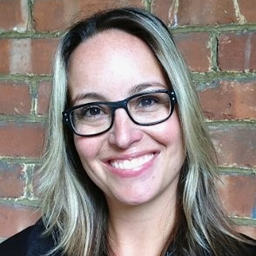Session 3A: Literacy, Social Reintegration for Vulnerable Youth, and Intergenerational Connections
My Session Status
Speakers:
Asha Dixit, Fraser-Hickson Institute
"Early Literacy Development Through Libraries and Community Partnerships"
Strong literacy skills are the cornerstone of the economic success of Quebec and individual Quebecers. However, in PISA 2018, 12% of 15-year-old Quebec students did not reach Level 2 in reading proficiency, the baseline reading level required to take advantage of further learning opportunities and fully participate in modern society. Strong adult literacy begins in early childhood and depends on what happens at home, daycares, and other early learning centres.
Fraser Hickson's minibiblioPLUS project builds partnerships with organizations working with families and children up to 8 years old (daycares, community centres, hospitals). It facilitates access to mini-libraries, volunteers who read to children, early learning resources, and workshops for parents, empowering them to read more to their children at home. Reading to children from birth exposes them to language, stimulates their imagination, fosters an emotional bond with the person reading to them, and instills a lifelong love of reading and learning.
This presentation will describe our work with community partners, especially those working directly with the Anglophone and newcomer populations in Quebec, and enumerate its impact.
Adrienne Winrow, Youth 4 Youth (Y4Y) Québec and Nathalie Bergeron, Regroupement des écoles de la rue accréditées du Québec
"Street School: An innovative, community-based approach to social reintegration for vulnerable youth"
The presentation will discuss the history of "Écoles de la rue" in Quebec and the reasons behind their success in reintegrating vulnerable youth into the communities in which the "schools" operate. The central role played by community organizations in this alternative model of education will be explained. Success stories will be shared to illustrate the impact of the École de la rue experience on students who were not able to self-actualize in the traditional school setting. The presentation will focus on the indispensable partnerships between community organizations designated as Écoles de la rue, the existing secondary schools in a given region, the Ministry of Education, and other key community stakeholders.
For the École de la rue model to work in your community, all these players must come together around one goal: to help youth who have left school but still need their communities to open doors for them to reach their personal goals, whatever those goals may be.
Andreea Zbarcea, Eva Marsden Centre & Jessica Di Bartolo Rouillier, Westhaven-Elmhurst Community Association
"Fostering Intergenerational Connections and Experiential Learning Through Community Gardening"
This presentation will discuss an intergenerational gardening initiative held at the Westhaven Elmhurst Community Center on May 25th, 2023.
The activity aimed to give youth and older adults the skills to garden while also creating opportunities for intergenerational exchange and learning. With the support of the Depot, a community food center based in Montreal's NDG neighbourhood, the participants planted in the Westhaven Center's planters, which supply vegetables and herbs all summer for the center's activities, the staff, and the community members.
In addition to the planting, the participants took part in a discussion around food security, food justice, food deserts, intergenerational learning, and relationships. The project created volunteer opportunities for the older adults, as well as the center's youth who maintain the garden throughout the summer. The presentation will highlight the different benefits for the youth, the older adults, and the community as a whole.

